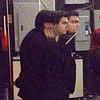Take a photo of a barcode or cover
adventurous
dark
funny
tense
Strong character development:
No
When I was young, I had a stunning, creative idea to have the different components of a computer strapped to my body. I thought it was clever, original, and have always intended to build it someday.
Only to find out in reading Snow Crash that the idea had been brought up and explored 31 years ago.
Living in shipping containers. The Metaverse. NPCs. Corporatocracy. Weaponized ideologies and religion. Cyber and viral warfare. The haves, the have-nots. Making a living online, and doing so by buying and selling trade secrets.
So many of the things- technologies, lifestyles, outlooks- that I thought were innovative and cutting edge among my generation are lifted straight from this book. Whether people read it and set about making it real, or the author just nailed what progress would look like, either way it's astounding. I feel like a 13 year old kid being told that he was really adopted after seeing how all this connects and references back to this work.
Additionally it's a great read, with lively imagery and great turns of phrase that strike home one after the other. There was one 17-page sequence of recap and explaining that I feel could have been cut, but other than that, I have almost no qualms with this book. This is Cyberpunk, this is Sci-fi, this is fiction in fine form.
Recommend to anybody and everybody. Will definitely be purchasing a copy and re-reading at some point.
Only to find out in reading Snow Crash that the idea had been brought up and explored 31 years ago.
Living in shipping containers. The Metaverse. NPCs. Corporatocracy. Weaponized ideologies and religion. Cyber and viral warfare. The haves, the have-nots. Making a living online, and doing so by buying and selling trade secrets.
So many of the things- technologies, lifestyles, outlooks- that I thought were innovative and cutting edge among my generation are lifted straight from this book. Whether people read it and set about making it real, or the author just nailed what progress would look like, either way it's astounding. I feel like a 13 year old kid being told that he was really adopted after seeing how all this connects and references back to this work.
Additionally it's a great read, with lively imagery and great turns of phrase that strike home one after the other. There was one 17-page sequence of recap and explaining that I feel could have been cut, but other than that, I have almost no qualms with this book. This is Cyberpunk, this is Sci-fi, this is fiction in fine form.
Recommend to anybody and everybody. Will definitely be purchasing a copy and re-reading at some point.
This was my second read. It didn't age well. I thought it was an innovative plot when I read it in the early aughts. What seemed so cool then, the metaverse and the librarian (who has at their fingertips all the information in the world!), now seems ho hum. I appreciate the dystopian capitalist satire, but it is too on the nose to be enjoyable, and having a hacker main character (literally Hiro Protagonist) who is also a samurai sword fighter makes me cringe. The 15 year-old skater girl has no depth and is overly precocious. I do remember feeling fascinated by its deep dive into ancient Sumerian texts but that hasn't come up yet (at 30%) and given how much I am not liking the rest of the book, I don't trust my former opinion...
Wow! This book started off great. I loved it, smiling with every page. This thing is ridiculous and hilarious. I mean, come on, Hero Protagonist for the main character’s name? The story hits the road at a hundred miles an hour, quite literally. And you really have to keep your wits about you to keep up with the multitude of future elements Stephenson flings at you, left, right and centre. Early on I thought there were far too many of these elements being introduced to keep track of, but it becomes pretty obvious that most of these are throw-away items of interest, so you can just relax and have fun with the read and not worry too much about it.
Unfortunately, the fantastic approach and writing style the author employs in the initial storyline falls off a cliff. The first irritation for me was that fact that Hero, our protagonist, appears to be in two places at once, but it is never explained how, or even acknowledged. Then there’s the interaction with what is actually a search engine, in which Hero asks about someone and we have to read through around ten pages of snippets of info that are so sporadic and disparate they can’t possibly be relevant to the story at hand. There doesn’t even appear to be a running theme of meaning stringing all these titbits of information together.
Then, to cap everything off and annoy me enough to slam the book closed in disgust, the author starts telling the story like a child’s textbook. No heart or depth, just visual narration. Imagine someone watching TV you can’t see and relaying what they are seeing to you. My limit was reached after several dry paragraphs describing a character waving around and directing a small box at people and things and at the end of this, as if the author suddenly thought, ‘oh wait, my readers are idiots, I better tell them what this is’ he adds the line ‘It was a Geiger counter.’ Clumsy, amateurish and condescending.
Oh, I forgot to mention. In the foreword, written by Stephenson, he tells you about a specific character being murdered on page 156! What a dick!
After having such high hopes at the beginning, this book crashed with a resounding thud of disaster.
Unfortunately, the fantastic approach and writing style the author employs in the initial storyline falls off a cliff. The first irritation for me was that fact that Hero, our protagonist, appears to be in two places at once, but it is never explained how, or even acknowledged. Then there’s the interaction with what is actually a search engine, in which Hero asks about someone and we have to read through around ten pages of snippets of info that are so sporadic and disparate they can’t possibly be relevant to the story at hand. There doesn’t even appear to be a running theme of meaning stringing all these titbits of information together.
Then, to cap everything off and annoy me enough to slam the book closed in disgust, the author starts telling the story like a child’s textbook. No heart or depth, just visual narration. Imagine someone watching TV you can’t see and relaying what they are seeing to you. My limit was reached after several dry paragraphs describing a character waving around and directing a small box at people and things and at the end of this, as if the author suddenly thought, ‘oh wait, my readers are idiots, I better tell them what this is’ he adds the line ‘It was a Geiger counter.’ Clumsy, amateurish and condescending.
Oh, I forgot to mention. In the foreword, written by Stephenson, he tells you about a specific character being murdered on page 156! What a dick!
After having such high hopes at the beginning, this book crashed with a resounding thud of disaster.
adventurous
emotional
funny
tense
fast-paced
Plot or Character Driven:
Plot
Strong character development:
No
Loveable characters:
No
Diverse cast of characters:
Yes
Flaws of characters a main focus:
No
So the reason why I wanted to read this book is because recently, there have been several incidents where someone has mentioned something about the tech oligarchy and mentioned that the CEO or whomever was trying to make a world just like Snow Crash. I read the book expecting that the book's particular brand of tech dystopia was especially cool or compelling.
But no, there's actually basically zero lionization of the fact that countries are basically privately owned corporations. Really makes you wonder who reads books like this and thinks that yeah, that's the world they want to work towards.
On its own merits, the book is good. Not great, but good. I like the mythological themes and how it takes a novel view on human society and psychology. However, Stephenson's action writing and character development leave quite a bit to be desired.
It's also worth mentioning that in the last fifth or so of the book, for some reason, the book gets decidedly rapey. Like there are scenes of ship offering its crew to the nonconsensual sodomy of pirates, then a pretty vivid sex scene involving a 15 year old.
But no, there's actually basically zero lionization of the fact that countries are basically privately owned corporations. Really makes you wonder who reads books like this and thinks that yeah, that's the world they want to work towards.
On its own merits, the book is good. Not great, but good. I like the mythological themes and how it takes a novel view on human society and psychology. However, Stephenson's action writing and character development leave quite a bit to be desired.
It's also worth mentioning that in the last fifth or so of the book, for some reason, the book gets decidedly rapey. Like there are scenes of ship offering its crew to the nonconsensual sodomy of pirates, then a pretty vivid sex scene involving a 15 year old.
Graphic: Pedophilia, Rape, Violence
adventurous
dark
mysterious
medium-paced
Plot or Character Driven:
Plot
Strong character development:
No
Loveable characters:
No
Diverse cast of characters:
Complicated
Flaws of characters a main focus:
No
A cyberpunk novel with some really cool and interesting ideas written by your gross uncle. Worth a try if you're interested in the history of sci-fi/cyberpunk or if you want a peek at the future Mark Zuckerberg and Peter Thiel want.
This book would be much better without the future racism or sexualization of teenage girls.
This book would be much better without the future racism or sexualization of teenage girls.
Graphic: Adult/minor relationship, Racism, Sexual harassment
Moderate: Antisemitism
Read the review here: http://timlepczyk.com/2013/08/28/review-snow-crash-neal-stephenson.html.
adventurous
challenging
dark
informative
mysterious
tense
medium-paced
Plot or Character Driven:
Plot
Strong character development:
No
Loveable characters:
Yes
Diverse cast of characters:
Yes
Flaws of characters a main focus:
No
This book is what I thought (hoped) Infinite Jest would sort of be like. I started it with the hope that I could understand tech bros differently, but ended up into the wall-to-wall religious studies themes. Why did no one tell me this book is a Babel myth?! There are LONG nerdy essays in here that are essentially slightly fictionalized religious studies essays. I dug it.
But, the person that read this and thought: “Let’s make a Metaverse with floating people so we can have meetings” really missed out on a liberal arts education. First, what necessitates the Metaverse is social dysfunction. Second, class in the Metaverse is in total crisis. Third, people being in BOTH worlds at the same time is a huge part of the appeal: it’s mostly Augmented Reality, not exclusively Virtual Reality. Fourth, one of the points made in the book is just HOW much the people who made the Metaverse needed to think it through more clearly as a social space— if only Musk had read that part. And, really damningly, the climax of the book… I won’t spoil, but let’s just say it’s not an endorsement in my reading.
But, the person that read this and thought: “Let’s make a Metaverse with floating people so we can have meetings” really missed out on a liberal arts education. First, what necessitates the Metaverse is social dysfunction. Second, class in the Metaverse is in total crisis. Third, people being in BOTH worlds at the same time is a huge part of the appeal: it’s mostly Augmented Reality, not exclusively Virtual Reality. Fourth, one of the points made in the book is just HOW much the people who made the Metaverse needed to think it through more clearly as a social space— if only Musk had read that part. And, really damningly, the climax of the book… I won’t spoil, but let’s just say it’s not an endorsement in my reading.
adventurous
funny
informative
lighthearted
tense
medium-paced
Plot or Character Driven:
A mix
Strong character development:
Complicated
Loveable characters:
Yes
Diverse cast of characters:
Yes
Flaws of characters a main focus:
Complicated




